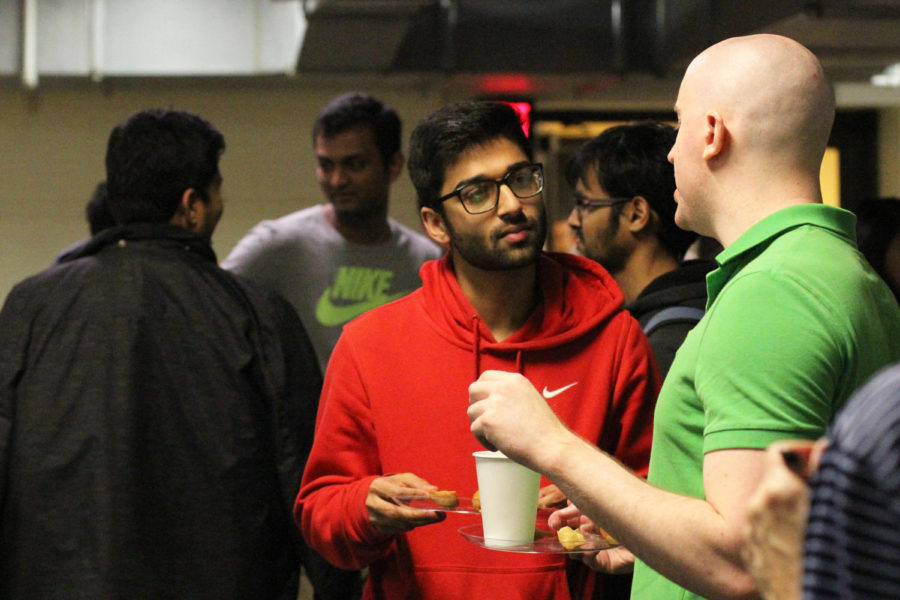Pakistan Student Association holds first cultural event
Pakistani Chai, an event put on by the Pakistan Student Association, involved Free bowling, billiards, table tennis and authentic Pakistani deserts. The event was held at the Cybowl & Billiards in the Memorial Union on March 9.
March 9, 2017
Was Pakistani Chai your cup of tea?
The Pakistan Student Association sponsored Pakistani Chai to inform people of their country’s culture Thursday night in the Memorial Union. The night consisted of snacking on traditional Pakistani foods, free bowling and billiards, dancing, music and learning about Pakistani people.
Groups joined around billiard tables and bowling stations while Pakistani music blared overhead. Some members arrived dressed in traditional clothes, while others came in casual clothing. The event was not opened to strictly students, with families in attendance as well.
Different Pakistani snacks were set out for guests to munch on throughout the night. Included were gulab jamun, pakora and fried samosa.
Gulab jamun is a sweet dessert served with almonds that is commonly eaten in Pakistan. Pakora is similar to falafel and is fried, but is not made with chickpeas. Samosa is also a fried dish that typically has a savory filling.
Chai tea was also on the menu to quench the thirst of the event goers. The origins of masala chai come from India, but the beverage is consumed around the world, and prevalent in Pakistan as well.
A sort of “crash course” of informational papers were placed at seating areas for those interested or curious in the Pakistani culture. Included in the papers was information of national monuments, fashion and celebrities.
Vice president Mohsin Raza said the purpose of the event was to teach people about the positive side of Pakistan and their people.
“The impression about Pakistan, especially in this continent is not that good,” Raza said.
Raza’s main point that he wanted to show those who are not familiar with Pakistan’s people is that “terrorism doesn’t belong to us.”
He also added that there are many positive things about Pakistan that people may not know because it is not shown in the news. He hopes that people will step away from the stereotypes of terrorists as Pakistanis.
“We are very helping people, we are very loving people and culturally rich people, so this is what [we] aim to present our culture,” Raza said.
Raza, along with other PSA members, is from the state Punjab. Members performed the dance bhangra, which is a dance for enjoyment. This dance is accompanied with a drum beat. There are two forms of bhangra, traditional and modern.
Raahym Rasul is a member of the PSA and is also from Punjab. He said the event was to “spread awareness about [Pakistani] culture.”
Rasul said PSA holds members from all six provinces of Pakistan, and some members that are from Iowa as well.
PSA hopes to hold more formal cultural nights in the future and is currently planning an event for next semester.
















